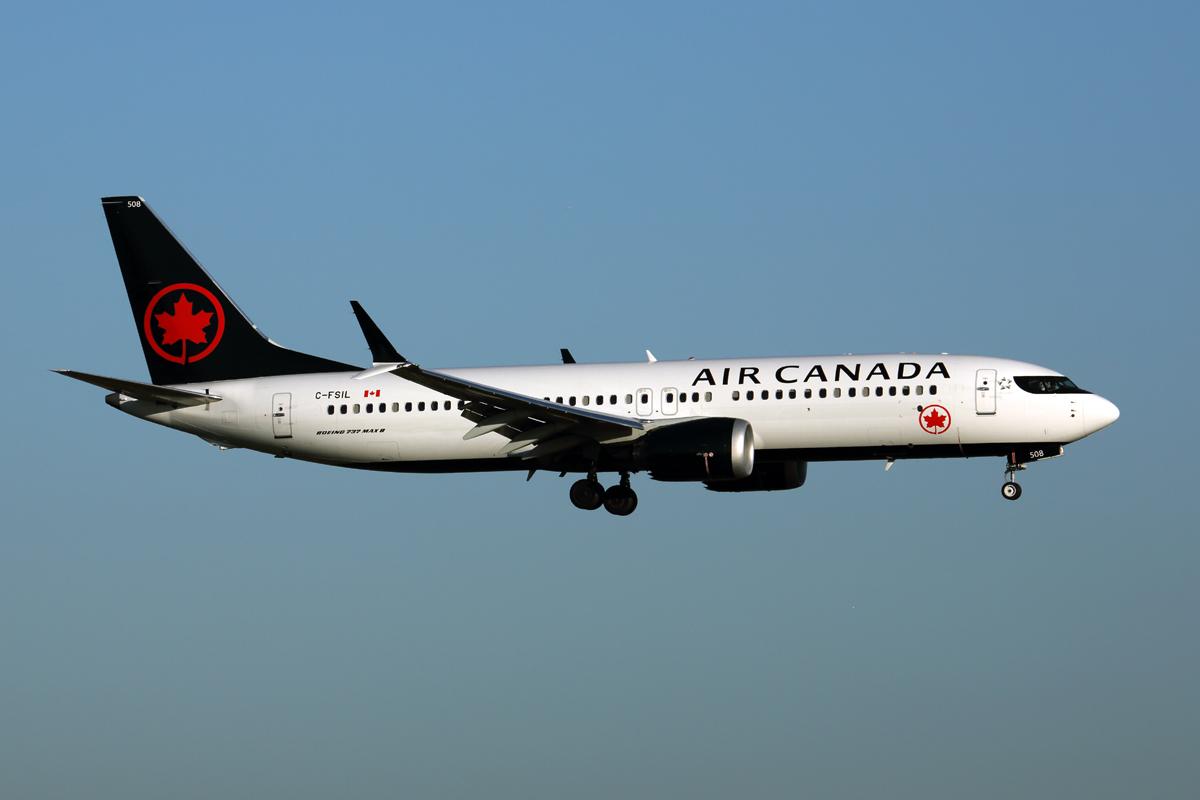
Air Canada is hopeful that challenges posed by the Boeing 737 MAX grounding and COVID-19 outbreak in China will be resolved by the second half of 2020, optimistic time lines that assume worst-case scenarios regarding both crises will not come to pass.
The Canadian flag carrier is assuming the FAA will recertify the MAX around June, and approval from Transport Canada will follow promptly, management said on the company’s fourth-quarter (Q4) earnings call. The carrier will begin reintegrating its 24 grounded MAX 8s during the third quarter (Q3), a process that will be aided by its access to three MAX simulators, two that are owned and one that has rental access. The airline’s 737 pilot group has been training on the simulators throughout the past year, which should reduce the time needed to train them post-recertification.
“Our pilots have been going through the simulators for the last year, basically since the grounding began. Now, as the final fix is approved by the FAA and Transport Canada, there will be incremental time for our pilots to go through that. But that will, by definition, be a shortened environment because they’ve been in the simulator for the past year,” Air Canada president and CEO Calin Rovinescu said.
The company has also been proactive about performing maintenance on the idled MAX aircraft, which it expects to further reduce the time needed to reintroduce the type. “As far as maintenance, we’ve had authority to move the aircraft for maintenance purposes, and they’ve been properly taken care of because of all kinds of procedures that have to be undertaken while they’re grounded,” Rovinescu added.
The MAX grounding has been especially difficult for Air Canada—which had expected to have 50 of the type in the fleet by midsummer—due to the fact that it does not operate any previous generations of the 737, unique among North American carriers. That situation has forced the company to carry the cost of the 400 pilots that had been trained on the MAX while they are stuck waiting for recertification, further driving up expenses over the course of the grounding.
In addition to the 24 grounded MAX aircraft currently in storage, Air Canada has outstanding orders placed for 37 more, with options to purchase 18 additional aircraft at a later date. The company’s most recent delivery time line forecasts deliveries of six MAX aircraft in the back-half of 2020, with a further 20 aircraft arriving in 2021.
Pressed by analysts on his forecast for a Q3 full recovery in the profitability of China and Hong Kong operations following the COVID-19 outbreak in the region, Rovinescu said the company arrived at its time line after analyzing the impact of previous epidemics on the air transport industry, particularly the outbreak of severe acute respiratory syndrome (SARS) in 2003.
With the highest exposure to mainland China of any North American carrier, representing 6% of annual systemwide capacity, Air Canada is bracing for a short-term hit to revenues following moves to curtail flying to China and Hong Kong until March. In the meantime, the carrier is redeploying capacity over the Atlantic “on an opportunistic basis,” Rovinescu said.
“While we certainly appreciate the amount of anxiety that is out there now, especially in China, we’ve seen other Asian markets still being relatively strong at this stage, and we’re hopeful that continues,” Rovinescu added.
Management also provided an update on the company’s pending acquisition of Montreal-based Air Transat, which is now expected to be approved by Canadian authorities “in the May time frame.”
“Good progress is being made, and we look at [May] as being the earliest possible date where we can get the approval,” Rovinescu said.
Despite the sidelining of roughly 25% of its operating fleet due to the MAX grounding, Air Canada saw a strong result in the 2019 fourth quarter, earning a record $152 million adjusted net income on $3.98 billion revenues, compared to a $360 million net loss in the year-ago quarter. The carrier is expecting a $200 million hit to EBITDA in the 2020 first quarter due to the MAX grounding, and is forecasting full-year capacity growth between 1% and 2%.


